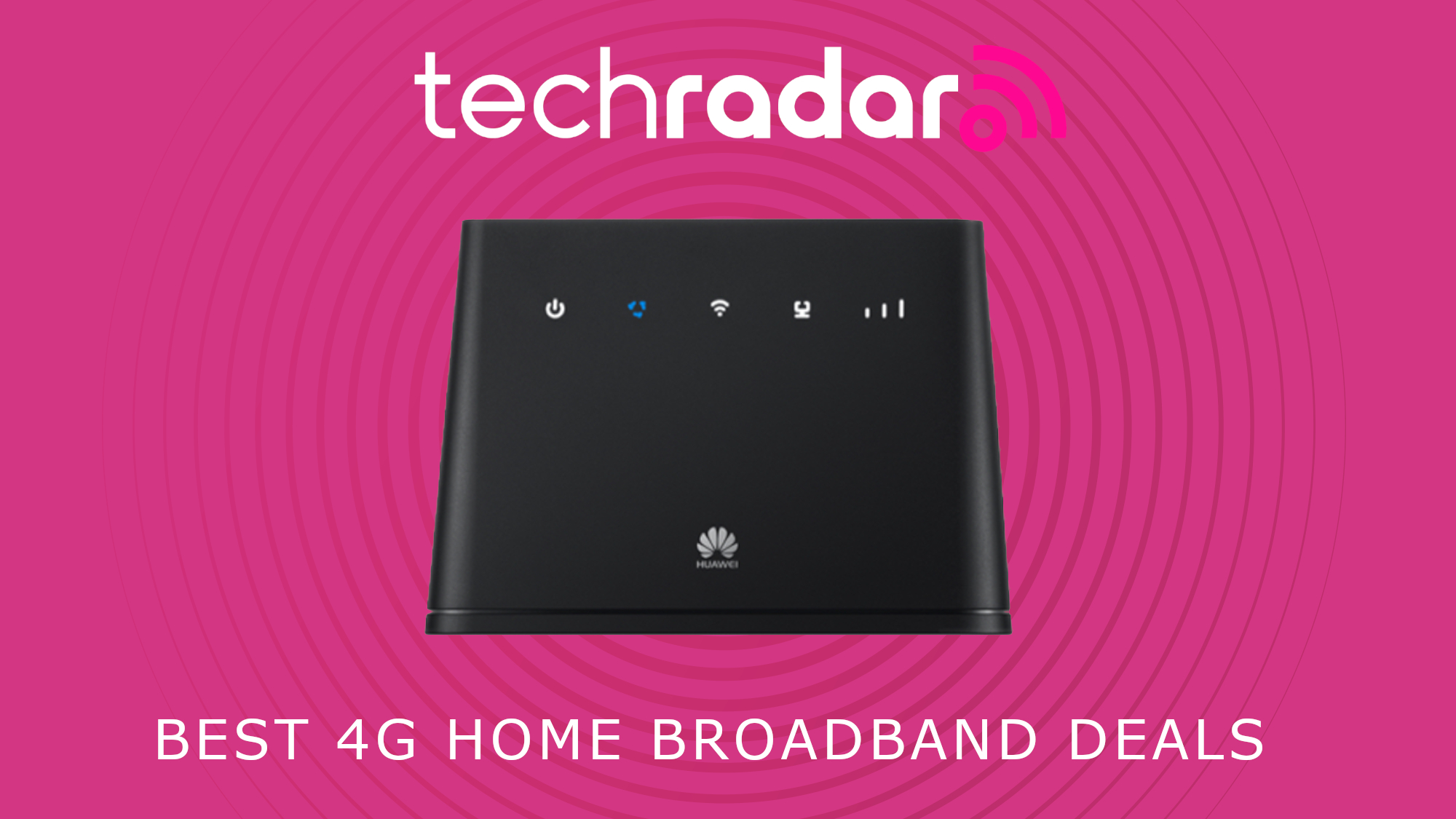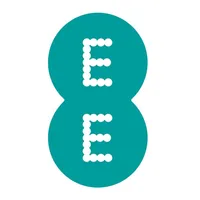
If you've been looking at the best broadband deals on the market but are struggling to find a reliable option for your property, then a 4G home broadband deal could be a great alternative.
4G home broadband packages are different from traditional fixed-line connections – this isn't something that should necessarily put you off purchasing one, though. With 4G broadband, you still receive a reliable and fast internet connection. Plus, you can connect all of your home's smart devices seamlessly.
When you choose 4G home broadband, you don't need a phone line and there's no need for an engineer to visit your home. Setup is as simple as putting a SIM card in the router and plugging it in – the whole process only takes a couple of minutes. 4G solutions can also be used nearly anywhere with a plug. This means if you're travelling on the train for work, for example, you can take your broadband connection with you.
In this guide, we've outlined all the best 4G broadband deals currently available. We've also answered a number of popular queries about 4G broadband, so you can make sure the product is right for you!
Best 4G broadband deals
Three 4G Home Broadband: £24 a month for 24 months + 6 months half price | 15Mbps download speeds | Unlimited data
This 4G hub from Three is the market leader. It allows you to pair up to 64 devices and it provides some of the fastest average download speeds available. Plus, the first six months are half price, then the price rises to £24 per month. For complete peace of mind, you also receive a 30-day money-back guarantee.
EE Smart 4G Hub 2: £50 a month for 18 months | 40Mbps download speeds | Unlimited data
EE's powerful 4G hub is one of the best on the market today and provides average download speeds of 40Mbps. This means that it's quick enough to rival most entry-level fibre deals. EE offers a variety of plans, including deals with data limits that save you money as well as options with one-month rolling contracts. Just keep an eye out for the upfront fees on the shorter contract lengths.
4G National Broadband: £99 upfront | £31.99 per month for 24 months | 25Mbps download speeds | Unlimited data
Live in a property that struggles to receive a traditional fixed-line connection? This option from National Broadband may be the best available for you as it specialises in providing properties that have slow fixed-line connections with hugely improved broadband speeds.
Vodafone GigaCube: £15 upfront | £45 a month for 24 months | free upfront | unlimited data
Vodafone's popular GigaCube packages recently returned to the market. This unlimited package is the company's best, but plenty of other options are available. Plus, you can choose between a 24-month contract or a one-month rolling plan.
4G home broadband FAQs
4G home broadband: what is it and how does it work?
4G home broadband solutions harness the power of mobile signals rather than relying on cables and landlines. In this way, they work like your smartphone when it isn't connected to your Wi-Fi and you need to get online.
So, instead of relying on a set of cables that need to be installed by an engineer, a 4G home broadband hub contains a SIM card that operates through mobile signals. This means you can get online as soon as your SIM and router arrive and there's no need for an engineer to visit your home.
This leads to another major advantage offered by 4G home broadband: it's easy to set up and portable. You simply put your SIM card in the back and then plug it in at the wall. The hub can then be used anywhere that has a plug, like a train or a hotel room.
What's the difference between a 4G hub and Mi-Fi?
4G hubs are different from Mi-Fi devices. It's important that you know the differences between the two devices so you know which is right for you.
4G hubs are powerful broadband hubs that are designed for us at home. They can be used on the move, but they can only be used when they're plugged into a socket at the wall.
By contrast, Mi-Fi devices are small, wireless devices that allow multiple users to share a mobile broadband connection. They operate without plugs and basically act as a mobile hotspot. As a result, they're most useful for people who work on the move, or if several people need to share a connection. However, as they're battery-operated, they're not designed to be used as home broadband solutions as they're battery-operated.
Interested in learning more about Mi-Fi? Visit our dedicated Mi-Fi guide, where you'll find loads of buying advice as well as all of the latest and best deals.
What are the pros and cons of 4G home broadband?
Pros:
- 4G broadband is portable. It can be used anywhere with a plug and signal.
- These solutions are much faster than ADSL connections.
- Some contracts only last for one month.
- A great alternative to a fixed-line connection.
- You can install the solution yourself in a couple of minutes.
- There's no need for an engineer to visit your home.
- You can get online the next day.
Cons:
- Short contracts can be incredibly expensive.
- Many short contracts come with large upfront fees.
- Cheaper plans usually come with data limits.
- 4G broadband is less reliable than traditional fixed-line broadband.
- 5G broadband options are quicker, as are many fibre deals.
- 4G hubs aren't as portable as Mi-Fi devices.
What are the downsides to 4G home broadband?
4G home broadband is becoming an increasingly popular solution. That said, there are potential downsides that you must be aware of before you take out a package.
For example, even though 4G home broadband solutions are portable, they will not work in an area that doesn't have 4G signal. So if you live in an area with a patchy signal, 4G home broadband is unlikely to be the right choice for you because it will be unreliable. In this instance, a traditional fixed-line broadband deal will likely be much better for your needs. For this reason, before you sign up for a 4G home broadband deal, you should check coverage in your area carefully.
Similarly, 4G home broadband may not be right for you if you need a fast internet connection. Although the speeds offered by 4G solutions are competitive, they cannot compete with those offered by Full Fibre packages. For this reason, if you regularly stream or multiple members of your household often conduct downloads at once, then you may be better off with a 5G home broadband plan or a Full Fibre broadband package.
Can I use 4G broadband as my home internet?
Yes. In the vast majority of cases, 4G broadband is a viable alternative to a fixed-line connection. This is especially the case if your property can only access ADSL deals or basic fibre connections.
The same can also be said if you live in a densely populated city centre or a block of flats, then 4G home broadband could be a great alternative to a fixed-line connection, which may be slow.
Having said that, 4G broadband isn't right for everyone. For example, if you can access 5G speeds or upgraded fibre connections, you may find that the speeds offered by 4G home broadband are comparatively slow.

How much are installation fees?
How much you'll need to pay in upfront and installation fees depends on the exact package you choose. However, the good news is that generally speaking, the upfront costs associated with 4G home broadband options are usually much lower than they are with traditional fixed-line connections.
In the majority of instances, if you're willing to sign up for a 4G home broadband contract that lasts for at least 12 months, there's absolutely nothing to pay upfront at all. Plus, your provider will also normally send your new hub/router out immediately, so you can get online the very next day.
On the flipside though, if you only want to take out a 30-day contract, many providers will charge you somewhere between £50 and £150 for the router.
Does 4G home broadband have any data caps?
The UK's top 4G home broadband providers offer a range of deals, including options with and without data caps.
Whether your plan comes with a data cap will depend on how much you'd like to spend. Cheaper deals often come with some form of data limit and, generally speaking, the less you spend the less data you'll receive.
Buying a plan with a data limit isn't necessarily an issue. However, before you sign up for a deal with a data limit, you need to make sure that it's right for you. For example, if you only really use the internet to browse the web, check your email, and update your social media profiles, then a plan that has a data limit won't necessarily be an issue.
However, by contrast, if you regularly use the internet to download films in HD or stream your favourite shows on Netflix, then you'll find these limits highly inconvenient. If you run out of data midway through the month, then you'll need to either buy more or wait until your data renews to watch more TV and get online.
So, it's up to you to determine how much data you need and whether an option with data limits is right for you. Often, we think the increased convenience provided by unlimited data is worth the additional cost.
Is 4G home broadband right for me?
Whether 4G broadband is right for you will primarily depend on a number of personal factors, such as where you live and the type of deals available in your area.
As a general rule, 4G home broadband will usually be suitable for your needs if you live in an area with a reliable 4G signal and you usually struggle to get a decent fixed-line connection. However, you must check the speeds and what else is available in your area before you commit to a deal.
But, in order to determine whether a 4G home broadband deal or a fixed-line connection is better for your needs, you must first make sure that you're aware of the advantages and disadvantages of using 4G broadband over regular broadband.
For example, one of the main benefits of 4G home broadband is that the solution is portable and can be used anywhere with a plug. Plus, short contracts that offer you greater flexibility are available.
Added to this, if fibre speeds aren't available yet in your area or you're unsure you want to make a long-term commitment, then 4G broadband could be great for your needs as it may provide you with a faster connection.
However, 4G home broadband connections aren't right for everyone. For example, while almost all regular broadband packages offer unlimited downloads and uploads, many 4G broadband packages have data caps. Plus, while 4G broadband can be faster than traditional broadband packages, it can be more unreliable and you may suffer from slower speeds in areas where network coverage is poor. If the 4G connection in your area is unreliable, then you may find that 4G broadband isn't suitable for your needs.
Finally, when determining whether 4G home broadband is right for you, it's important to consider the price. While 4G solutions are often available with one-month contracts, these are usually expensive and you'll be charged set-up or upfront fees. This can make these solutions much more expensive than a traditional fixed-line deal.
By contrast, if you're willing to take out a longer-term deal, these fees are usually waived. This can make these deals substantially cheaper. In some circumstances, they may even be cheaper than a comparable fixed-line deal.
4G broadband deals comparison
Think 4G home broadband might be the best option for you and your needs? Check out the top offers from the UK's best broadband providers below. At just a glance, you'll be able to see all of the best broadband offers for you. Not completely sold on 4G? We can show you each option available at your property. This way, you can make an informed decision.
Still want more options? Then head to our main broadband deals guide for all the best tariffs out there right now.
Sign up for breaking news, reviews, opinion, top tech deals, and more.

Rob is TechRadar's VPN Editor. Coming from a background in phones and technology, he's no stranger to the risks that come with putting yourself online. Over years of using different platforms, testing the limits of his online persona, and feeling the brunt of several data breaches, Rob has gained a keen understanding of cybersecurity and the benefits of services such as VPNs in providing a secure online experience. He uses this to not only advise on the best ways to stay secure online but also share his own experiences and especially how to avoid trouble. Outside of work, you'll find Rob on the tennis courts, in the gym, or diving into the biggest and best games of the year.
To share a story or tip, email robert.dunne@futurenet.com



